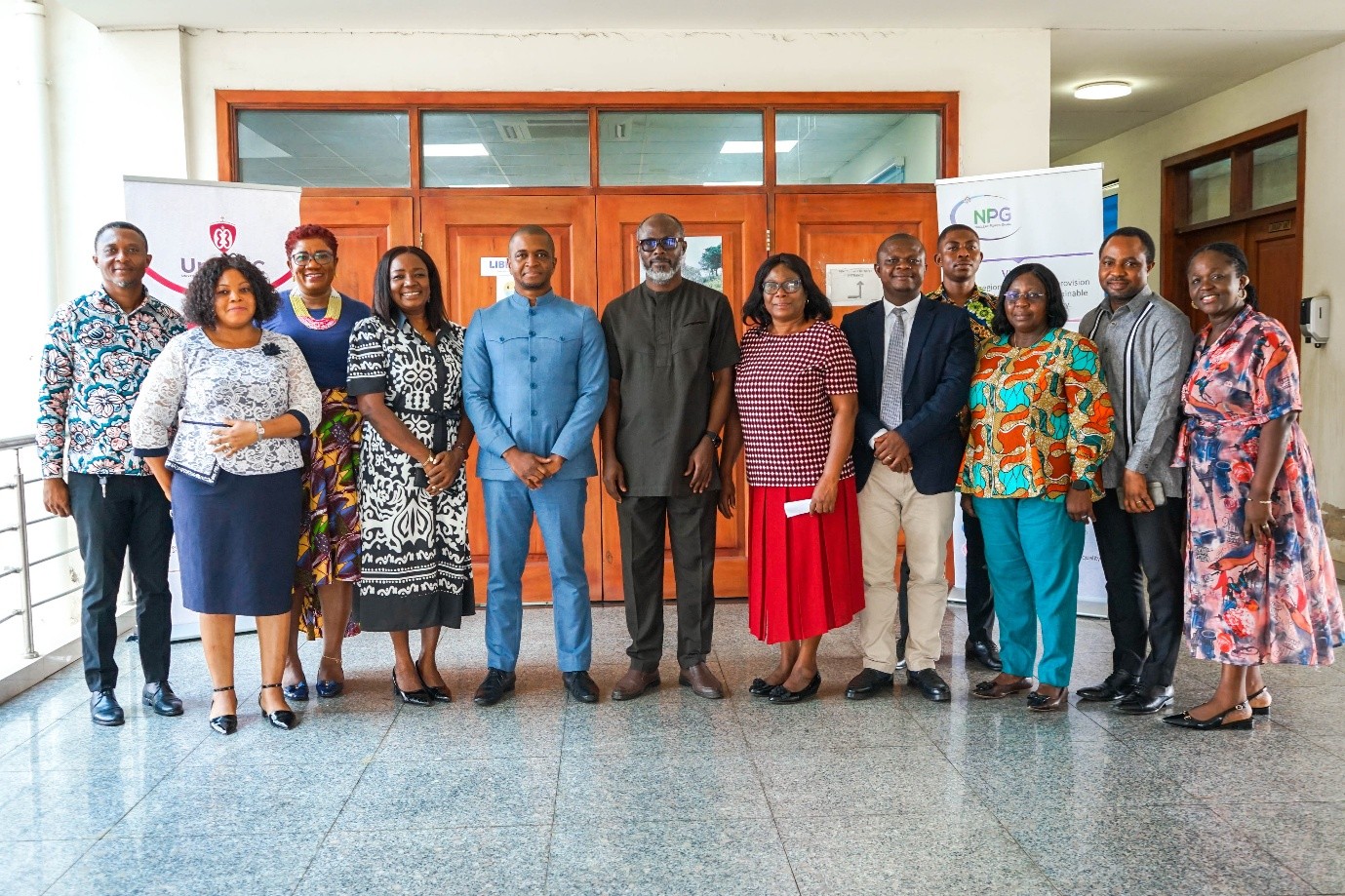
On June 19, 2025, a delegation from the Nuclear Power Ghana (NPG) paid a courtesy call on the Management of the University of Media, Arts and Communication (UniMAC) to explore collaborations. The purpose of the call was to initiate collaborations that would enhance public understanding through communication on the concept of nuclear energy. It was also to set the stage for the education of UniMAC’s students on nuclear energy as future communication practitioners, and help change public misconceptions and perceptions on nuclear energy as part of Ghana’s nuclear readiness efforts.
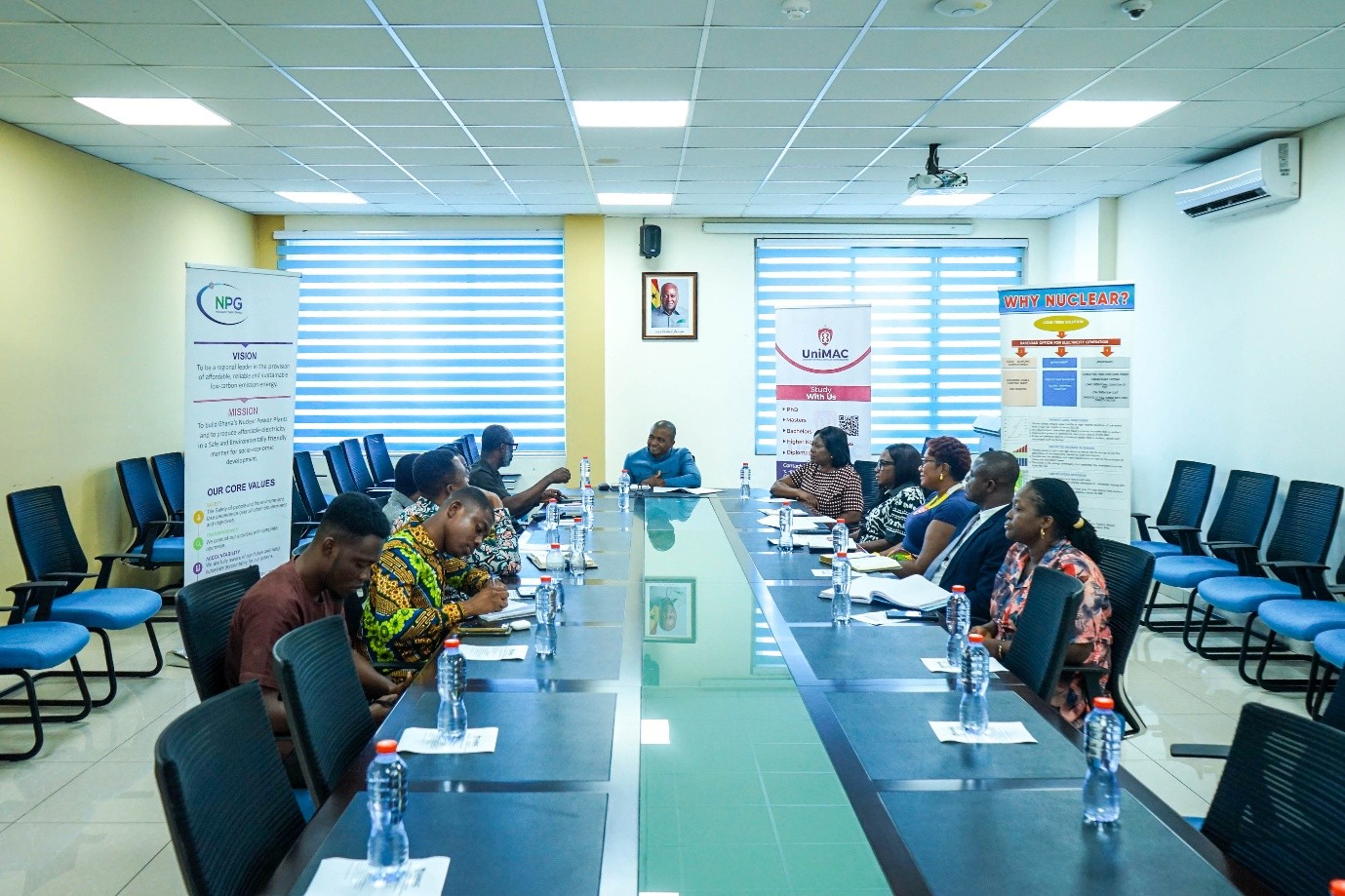
The delegation from the NPG was led by Dr. Stephen Yamoah, the Executive Director at Nuclear Power Ghana. Other members with him were: the Manager of Engineering Development at Nuclear Power Ghana, Mr. Alexander Agyenim-Boateng; the Public Affairs Manager at Nuclear Power Ghana, Ms. Bellona-Gerard Vittor- Quao; the Manager of Localisation and Stakeholder Support at the Nuclear Power Institute, Mr. George Appiah; Members of the Communication Department at Nuclear Power Ghana, Mr. Emmanuel Tetteh and Mr. Kojo Siaw; respectively.
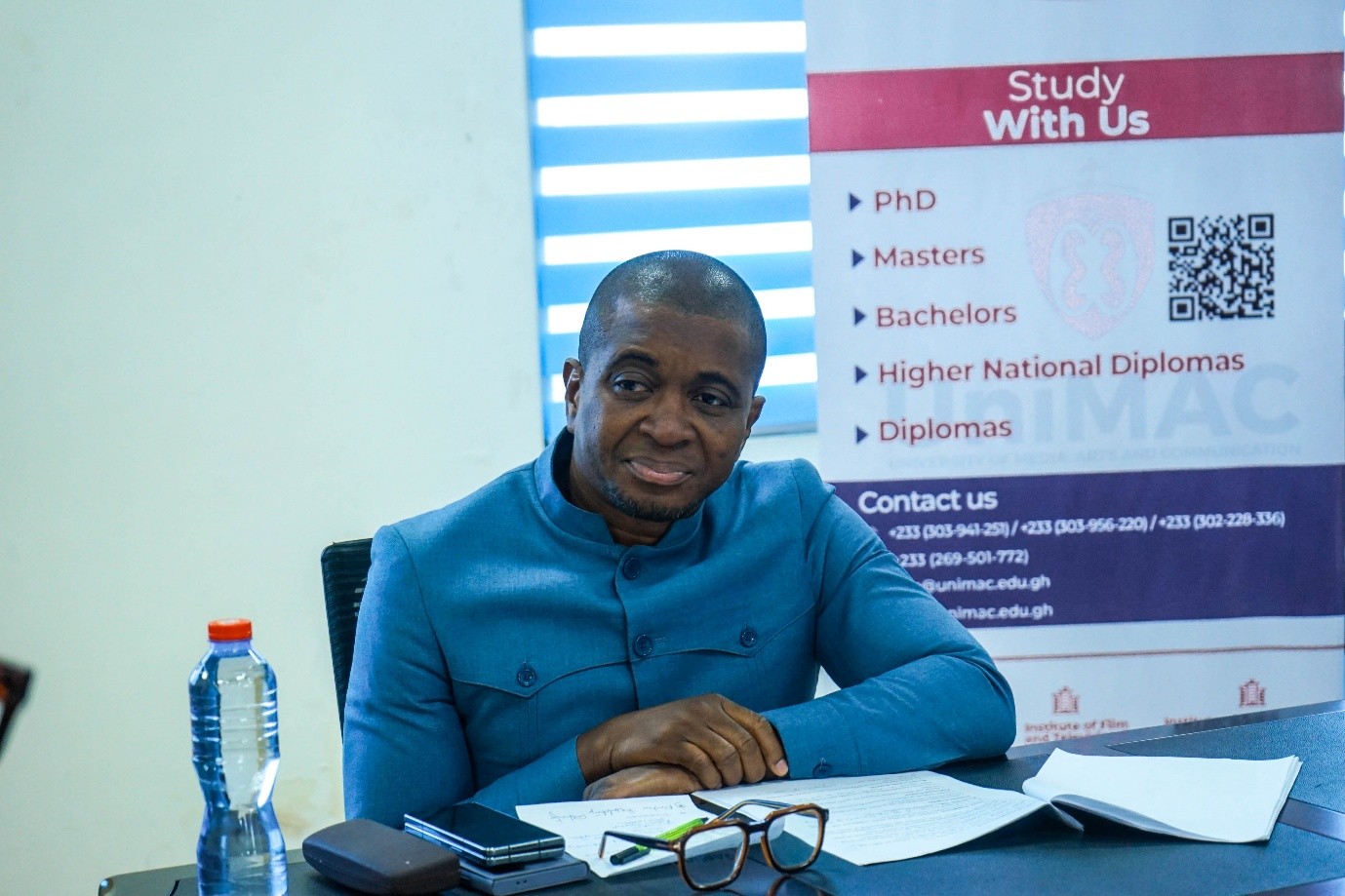
Receiving the delegation at UniMAC was the Pro-Vice-Chancellor, Prof. Winston Abroampa who chaired the meeting in the stead of the Vice-Chancellor, Prof. Eric Opoku Mensah. Other Management members with him were the Rector of the Institute of Journalism (IJ), Prof. Christiana Hammond; the Acting Registrar of UniMAC, Mrs. Patience Sowah; the Director of Public Affairs, Ms. Nana Efua Rockson; the Dean of the Faculty of Integrated Communication Sciences (FICS), Dr. Daniel Odoom; the FICS Faculty Officer, Mrs. Edwina Howard Quartey; and the Assistant Registrar at the Centre for Global Education and Collaborations, Mrs. Perpetual Agyemang.
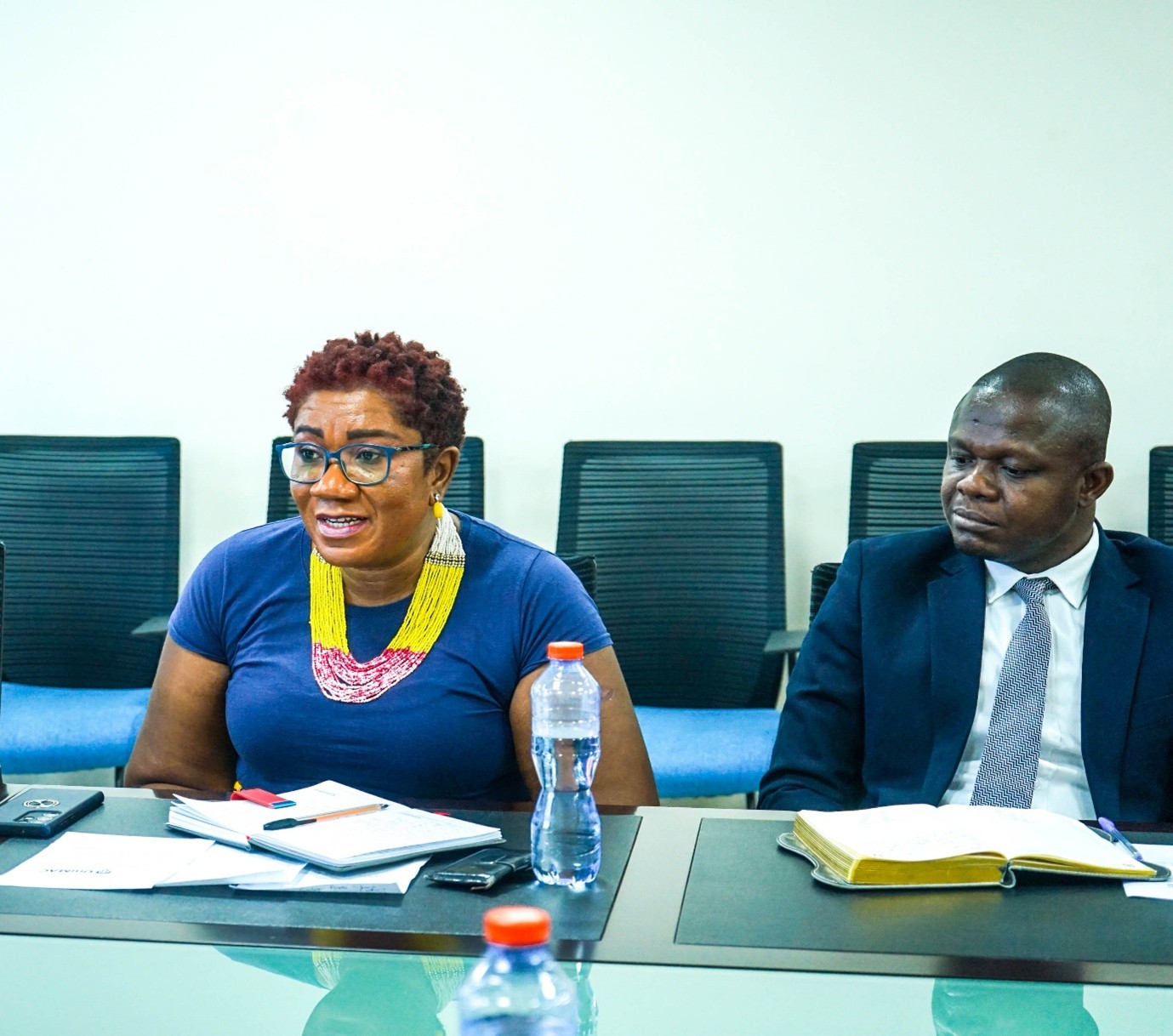
Commencing discussions, Ms. Rockson welcomed the delegation to UniMAC and introduced the members at the UniMAC side, meeting with them. Ms. Vittor-Quao also did same on the NPG side to create familiarness for the meeting.
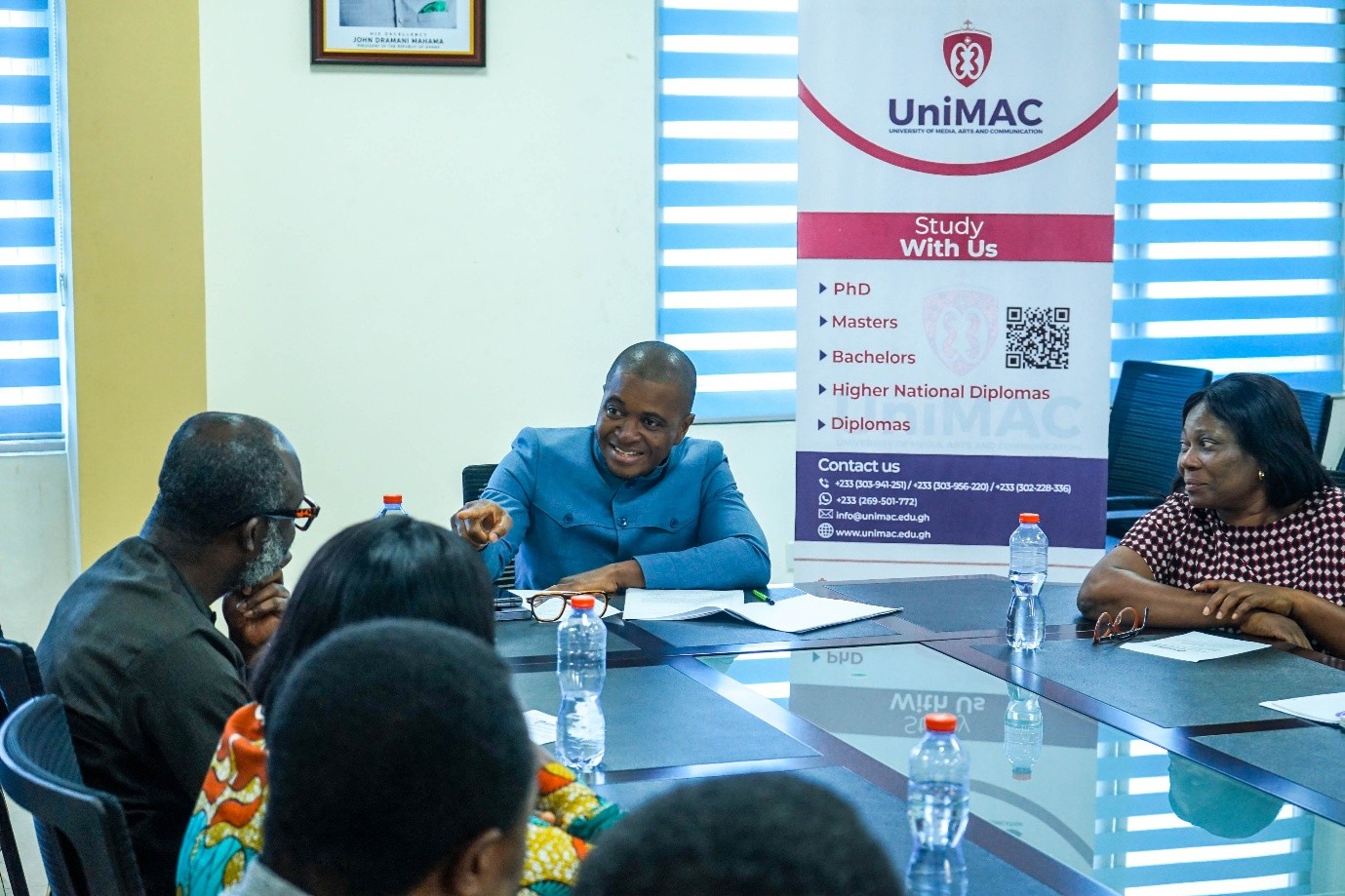
Welcoming the delegation, Prof. Winston Abroampa extended warm felicitations on behalf of the Vice-Chancellor and delightedly expressed gratitude for the selection of UniMAC by the NPG for collaborations. He went on to establish the united strength of UniMAC as a merger of three Institutes and how individually and collectively, the University is position to be the beacon of communication, media and arts education in Ghana and beyond.
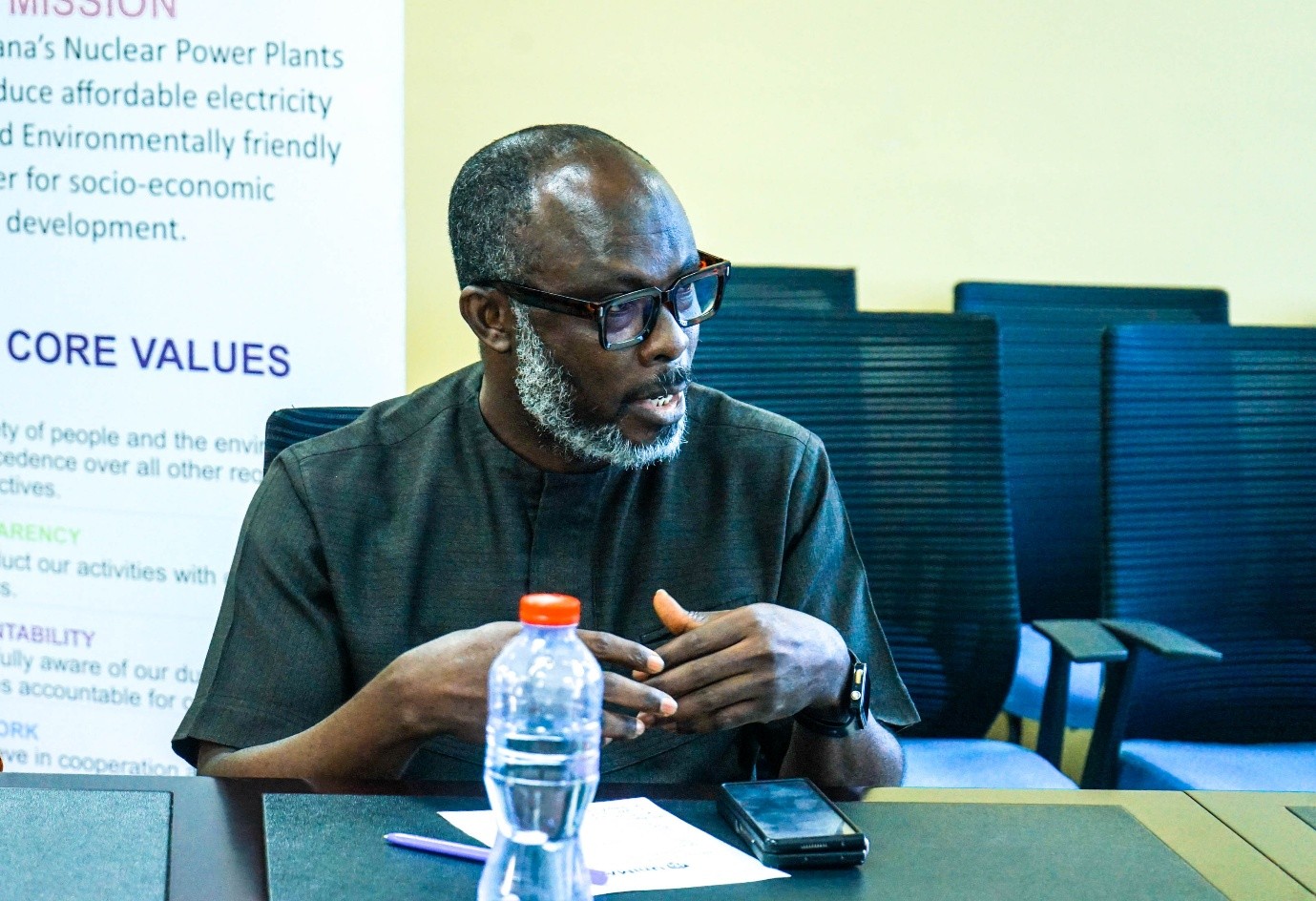
Dr. Stephen Yamoah emphasized the critical role of communicators in explaining nuclear energy and providing accurate, balanced information to the public. He noted that, training student journalists on both the advantages and risks of nuclear energy would empower them to produce informed and responsible reportage in the statement that, “this collaboration is to help inform and educate the public on nuclear power which will also help reduce the misconceptions about nuclear power” in Ghana.
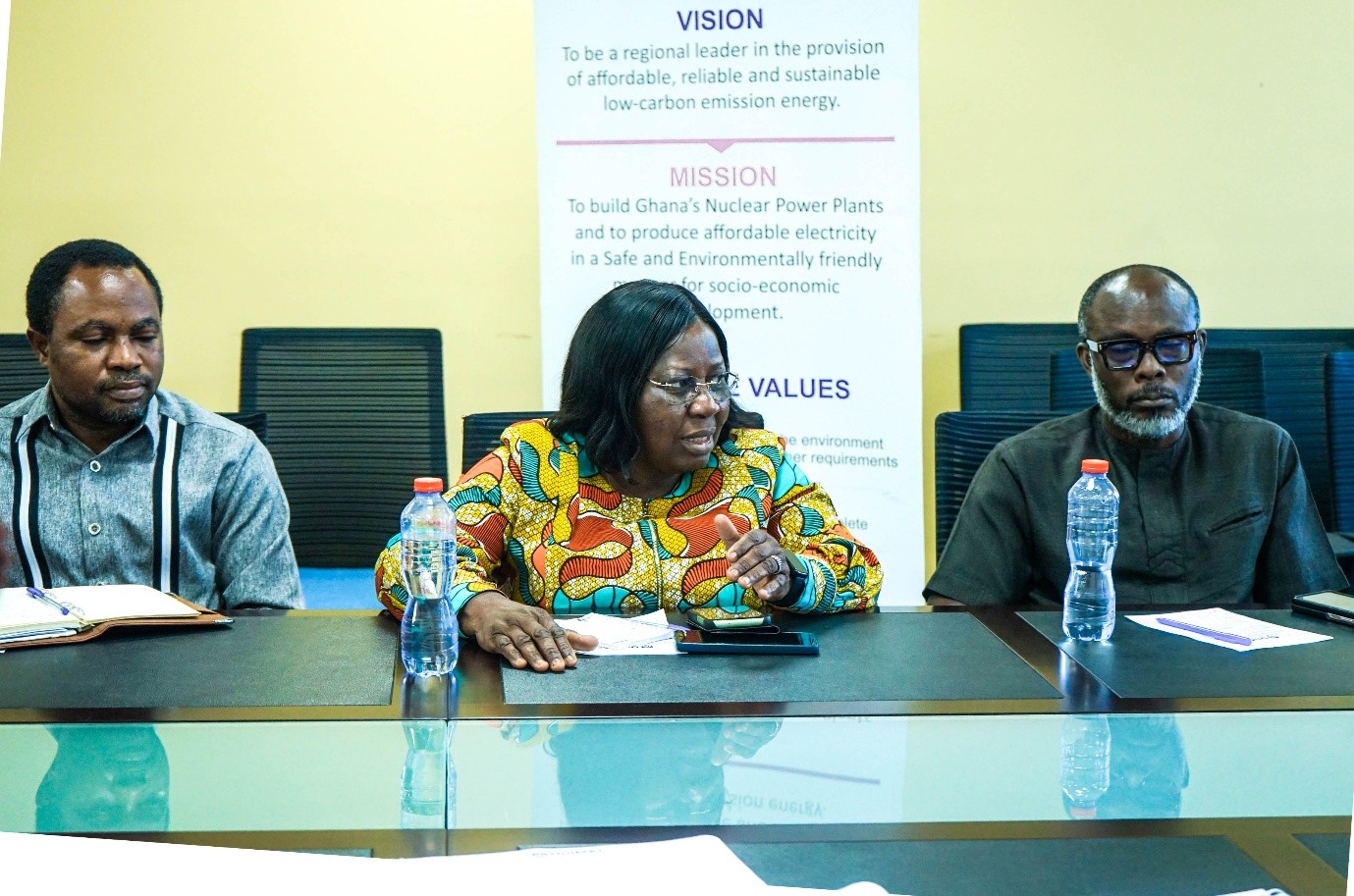
Ms. Vittor-Quao explained the structure of Ghana’s Nuclear Energy framework, clarifying that, the Nuclear Power Ghana operates under the Ghana Nuclear Power Programme Organisation (GNPPO), which is responsible for overseeing the nation’s nuclear power agenda. She highlighted that the development of nuclear power involves addressing nineteen (19) key infrastructural issues, with human resource development as one critical cardinal. She recounted how discussions on nuclear power communication began before the merger of the three Institutes as UniMAC, how discussions stalled as a result of the new identity of UniMAC and the opportune time to begin a more formalized relationship with UniMAC, with a clear roadmap on deliverables. She stated that, “collaborating with UniMAC is therefore part of a broader strategy to develop communication professionals capable of supporting the national nuclear agenda”.
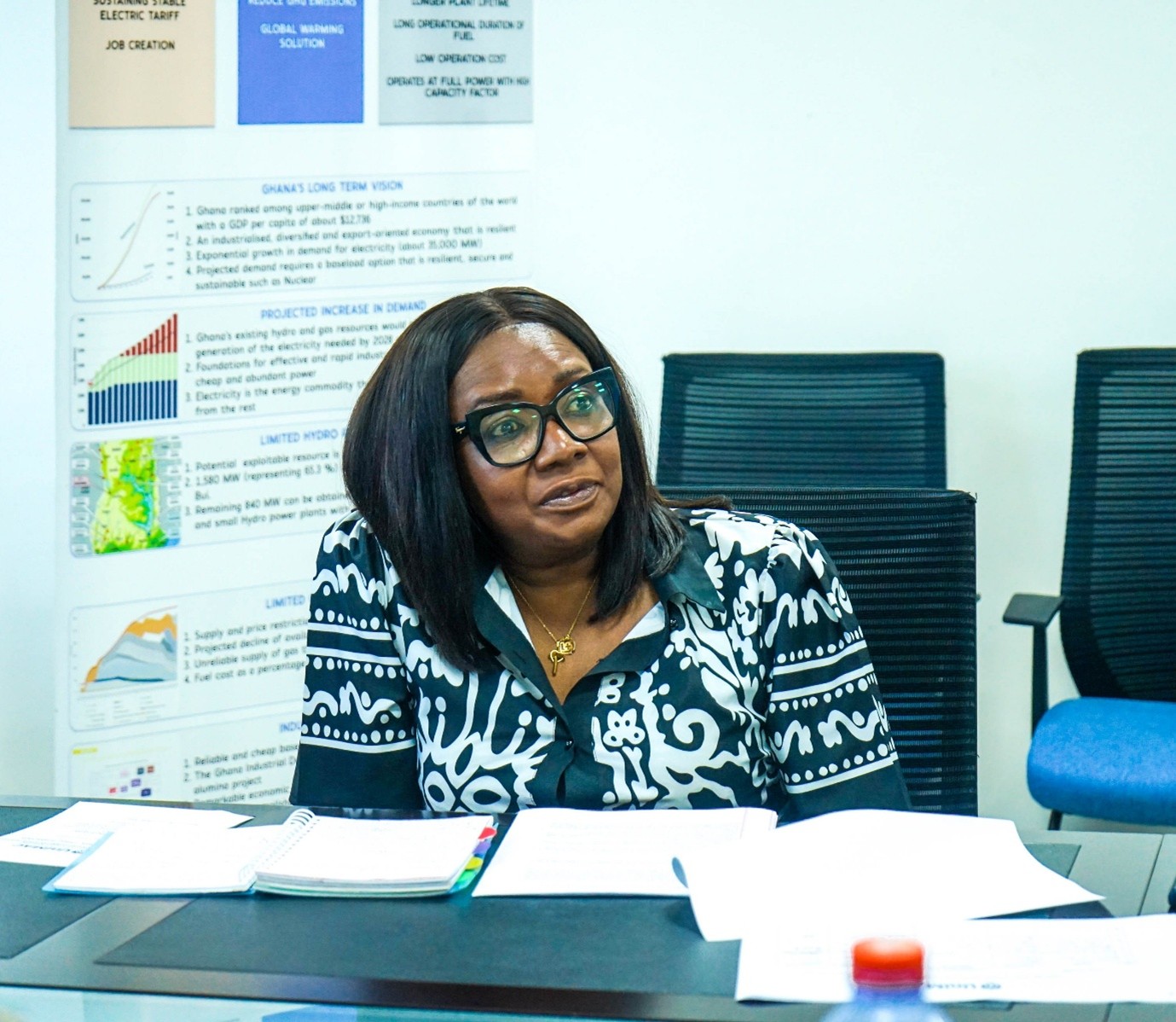
Prof. Hammond, the Rector of IJ, welcomed the initiative, describing it as timely and an important step toward changing public narratives and the misconceptions around nuclear power. She intimated that, the youth today are eager for information and that by including nuclear energy concepts in their communications curriculum, they would be good ambassadors in educating their circles of influence and the public at large. She further recommended engagements with established media houses to champion this course. Also, the Rector proposed the institution of sponsorships for UniMAC’s students who undertake research work in nuclear communication, as a way of encouraging academic interest in the field. “Training is one of the best ways of knowledge creation and knowledge sharing. We are ready to take up this responsibility” she stated.
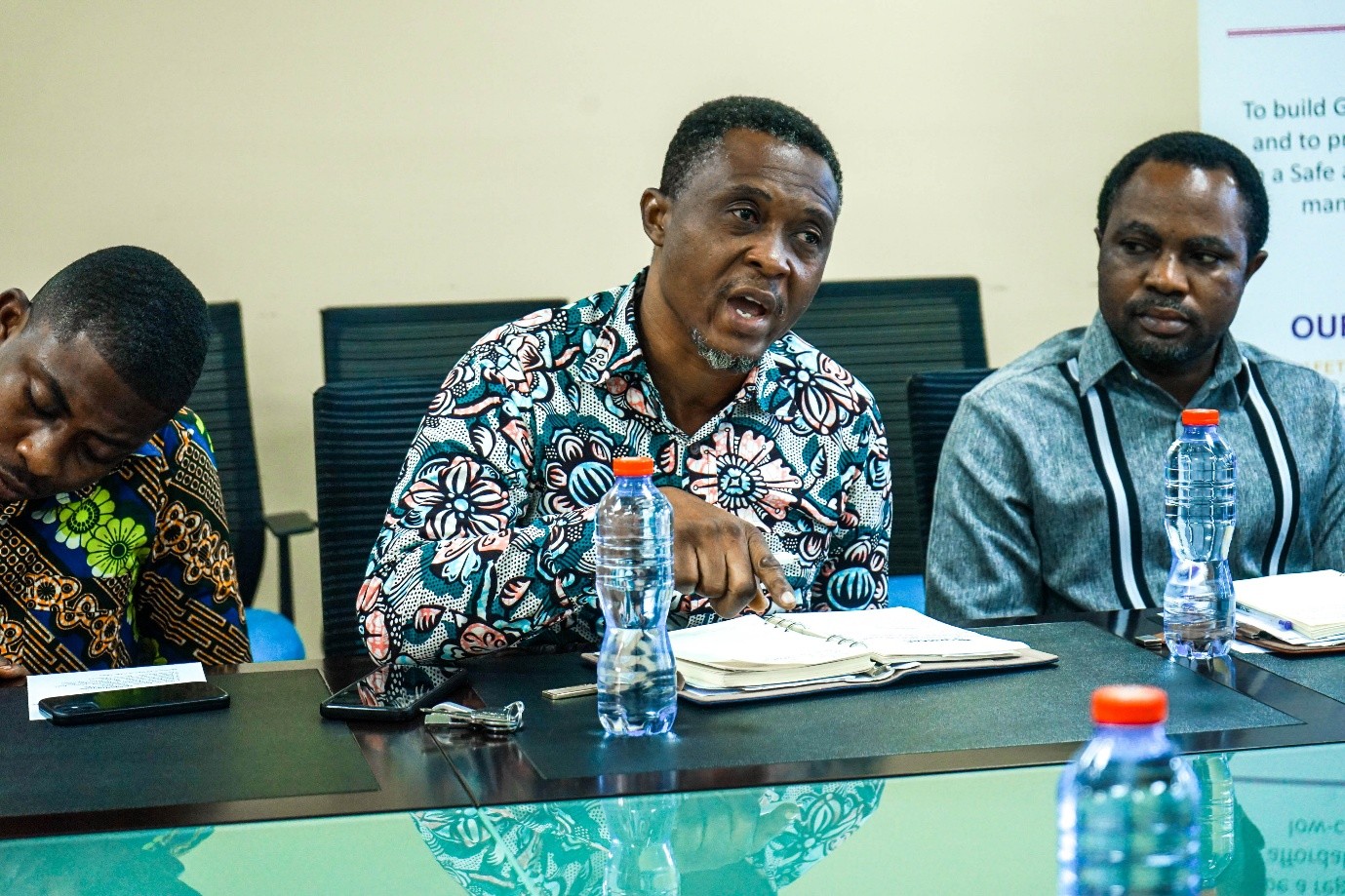
Talking about the roadmap for this collaboration, Mr. George Appiah provided insights into the implementation plan. He indicated that, a foundational nine-module nuclear communication course is to be introduced for UniMAC’s students. Practicing journalists, he said, would also benefit from intensive one-week training programs modelled into short certification programmes. At the heart of the training would be research to gauge progress pre-training and post training. He further mentioned that follow-up activities would be organized to reinforce the knowledge gained and ensure sustained awareness.
Giving closing remarks, the Pro-Vice-Chancellor, Prof. Winston Abroampa, reiterated UniMAC’s commitment to supporting the rollout of the program, emphasizing that, communication is central to the success of such national projects. UniMAC is uniquely positioned to deliver excellence in Media, Arts and Communications education at the tertiary level.
